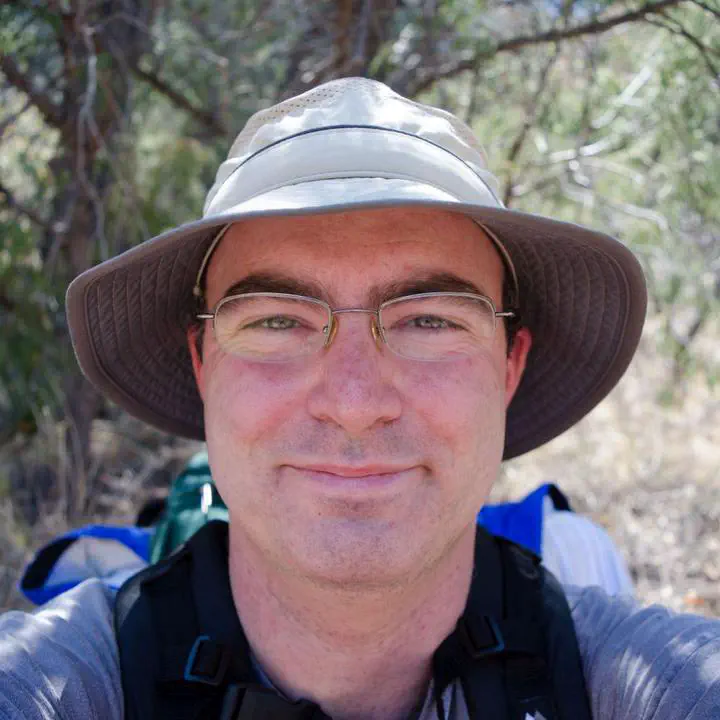Michael Erb
 Professor Michael Erb
Professor Michael Erb
About
Dr. Michael Erb is an Assistant Research Professor in the School of Earth and Sustainability at Northern Arizona University, where he has been a faculty member since 2017. His research focuses on understanding past climate changes through paleoclimatology and atmospheric science approaches.
Research Interests
Paleoclimatology
- Holocene temperature reconstructions using proxy data
- Understanding natural climate variability over the past 12,000 years
- Integration of multiple paleoclimate datasets for comprehensive climate histories
Climate Dynamics
- Atmospheric circulation patterns and their evolution
- Orbital forcing of climate and its long-term effects
- Climate system responses to natural and anthropogenic forcings
Atmospheric Science
- Physical principles of climate change
- Atmospheric dynamics and their relationship to climate patterns
- Quaternary science applications to modern climate understanding
Education
- Ph.D. Atmospheric Science, Rutgers University (2014)
- M.S. Atmospheric Science, Rutgers University (2011)
- B.S. Atmospheric Sciences, University of North Carolina at Asheville (2007)
Research Accomplishments
Dr. Erb has contributed to groundbreaking paleoclimate research, including the most comprehensive paleoclimate dataset ever compiled for the past 12,000 years. His analysis revealed critical insights about natural climate cooling patterns that preceded recent anthropogenic warming.
Key Research Findings
Dr. Erb’s analysis of global temperature patterns showed: “The rate of cooling that followed the peak warmth was subtle, only around 0.1°C per 1,000 years. This cooling seems to be driven by slow cycles in the Earth’s orbit, which reduced the amount of summer sunlight in the Northern Hemisphere, culminating in the ‘Little Ice Age’ of recent centuries.”
Major Research Projects
Global Holocene Climate Study
- Co-led international collaboration of 93 paleoclimate scientists from 23 countries
- Compiled 1,319 data records from 679 sites globally
- Published comprehensive paleoclimate dataset covering the past 12,000 years
- Demonstrated that recent warming has reversed 6,500 years of natural cooling
Data Assimilation Research
- Principal investigator for “A global Data Assimilation of Moisture Patterns from 21,000-0 BP (DAMP-21ka)”
- Published in Climate of the Past (2024)
- Advanced methodological approaches to paleoclimate data integration
Publications and Research Impact
Dr. Erb has authored over 30 peer-reviewed journal articles, publishing in top-tier journals including:
- Nature
- Geophysical Research Letters
- Climate of the Past
- Other leading atmospheric science and paleoclimate journals
Funding and Grants
Dr. Erb’s research is supported by significant federal funding:
- National Science Foundation grants totaling over $1.2 million for paleoclimate research
- Recent NSF award of $678,000 for extended research through 2023
- Multiple collaborative grants supporting international paleoclimate initiatives
Teaching Experience
Northern Arizona University
- Climate Dynamics (Spring 2020, Spring 2022)
- Guest Lecturer - Topics in Quaternary Science
- Fill-in Lecturer - Global Climate Change
Rutgers University
- Teaching Assistant - Multiple meteorology and atmospheric science courses
- Fill-in Lecturer - Physical Principles of Climate Change
Collaborative Research
Dr. Erb works closely with renowned paleoclimatologists:
- Darrell Kaufman - Regents’ Professor (lead PI on major projects)
- Nicholas McKay - Associate Professor in climate informatics
- Cody Routson - Assistant Research Professor
- International network of paleoclimate researchers
Professional Service
- Member of international paleoclimate research consortiums
- Contributor to major paleoclimate database initiatives
- Reviewer for leading atmospheric science and paleoclimate journals
- Advocate for open science and data sharing in paleoclimatology
Research Impact
Dr. Erb’s work contributes directly to understanding natural climate variability, providing crucial context for assessing current anthropogenic climate change. His research helps distinguish between natural and human-caused climate variations, informing climate policy and future projections.